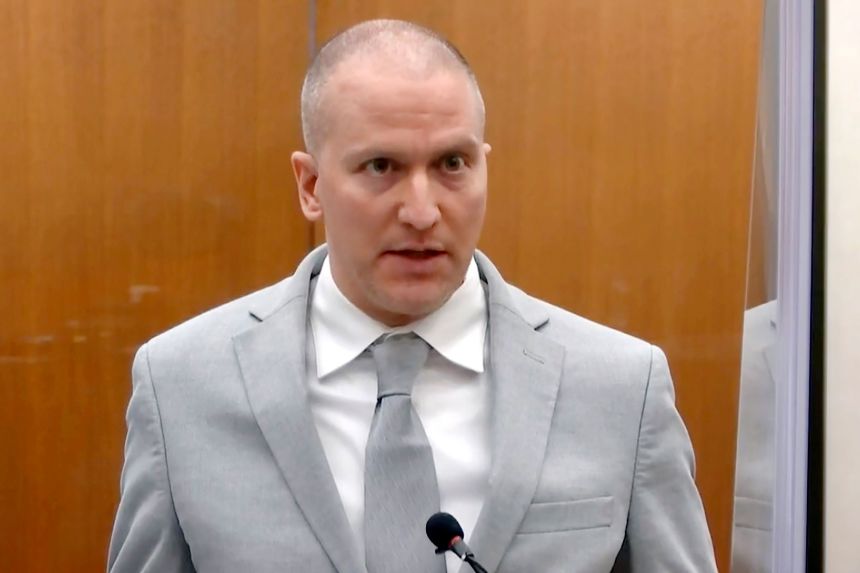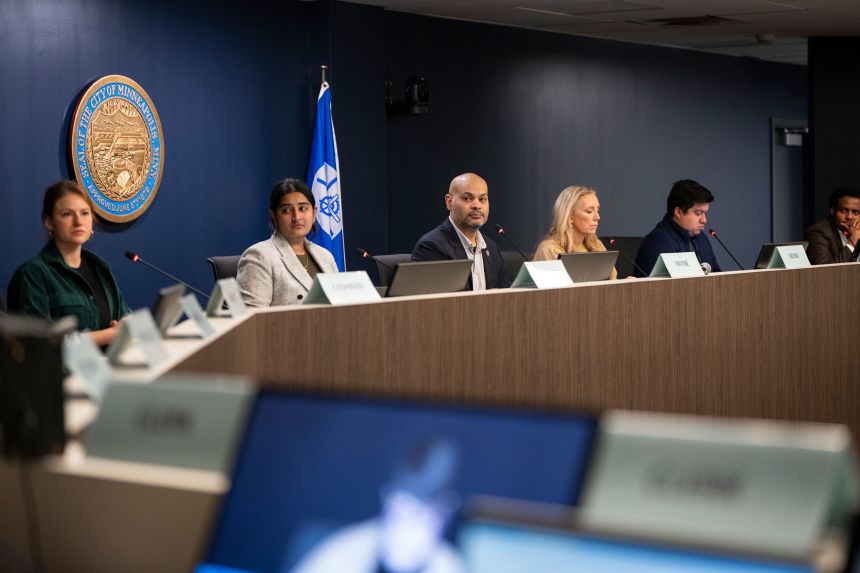The end of federal oversight and calls to pardon George Floyd's convicted killer could undermine police reforms, Minneapolis leaders warn
It’s been almost five years since the world watched George Floyd beg for his life as a White police officer in Minneapolis knelt on the Black father’s neck for more than 9 minutes.
After a bystander’s video of Floyd’s death sparked nationwide calls for an end to police impunity and brutality, the officer, Derek Chauvin, was fired. A state jury ultimately convicted him of murder, and he pleaded guilty to federal civil rights violations, netting him more than two decades in prison.
Meanwhile, leaders in Minneapolis – in separate partnerships with the US Justice Department and state officials – began implementing policing reforms to try to prevent any such tragedy from happening again.
Those federal efforts came to an abrupt halt Wednesday as the Trump administration announced it would end its oversight of policing reforms through court-authorized consent decrees in cities including Minneapolis, Phoenix and Louisville, Kentucky.
The move complicates the path toward ensuring more fair policing in Minneapolis, leaders there told CNN, just as some activists and lawmakers on the political right are urging President Donald Trump to pardon Chauvin, a campaign that some also see as chipping away at gains toward racial justice.
When asked outright in March if he was considering pardoning Chauvin, Trump told White House reporters, “No, I haven’t even heard about it,” and his administration since then has not signaled he’s interested in pursuing the matter.
Still, Rep. Marjorie Taylor Greene, the GOP firebrand from Georgia, wrote last week on social media: “I strongly support Derek Chauvin being pardoned and released from prison.” Right-wing commentator Ben Shapiro launched a pardon campaign in March to encourage Trump to do the same, in part with a nod from White House confidant and billionaire Elon Musk.
Greene also resurfaced, without evidence, the argument refuted by medical officials and rejected by a state jury of Chauvin’s peers that “Floyd died of a drug overdose.”
“Derek Chauvin murdered George Floyd in front of the whole world,” Democratic Minnesota Attorney General Keith Ellison told CNN this week, noting his office “proved beyond a shadow of a doubt that Chauvin asphyxiated Floyd.”
“The only conceivable purpose” of a pardon, Ellison added, “would be to express yet more disrespect for George Floyd and more disrespect for the rule of law.”

For Floyd’s brother, Terrence, calls to pardon Chauvin are like “reinjuring … reopening a wound,” he told CNN in March.
“This is the fifth year, we were supposed to see progress,” Terrence Floyd said. “So many things was promised to us as a people – not just to Black and Brown people, but as a people – and now they’re backpedaling.”
Practically, a Trump pardon likely would mean little more than a change of address for Chauvin because it only would apply to his 21-year sentence on the federal charges, which the ex-officer has been serving in a federal prison in Texas concurrently with his 22 ½ year state sentence.
“A pardon of Chauvin’s federal conviction would return him to Minnesota to serve the rest of his sentence in state prison,” Ellison said.
But the mounting discussions of a pardon and the Trump administration’s months-long delay of consent decree proceedings have had leaders in Minnesota preparing for the end of federal oversight of the Minneapolis Police Department – and considering how to maintain momentum for reform, even without support from Washington.
A Justice Department report in 2023 linked directly to Floyd’s death found “systemic problems” at the city agency, including racial discrimination, excessive and unlawful use of force, First Amendment violations and a lack of officer accountability.
That same year, the Minnesota Department of Human Rights and the city of Minneapolis reached an agreement in state court to address race-based policing and bring “transformational changes” to the city’s police department. The deal centers on changing the culture of the city’s police by creating “clear, effective policies” and providing strong accountability and oversight.
The agreement, in part, “require(s) officers to de-escalate,” “prohibit(s) officers from using force to punish or retaliate” and limits how they can use stun guns, chemical irritants and force. It also mandates the city and the police agency “conduct thorough investigations of police misconduct.”
Then, weeks before Trump’s inauguration this January, the Minneapolis City Council approved a separate consent decree with the federal government that also would have mandated major reforms.
Just days into Trump’s second term, however, his administration announced it would halt federal oversight of police reforms, and in late April, Trump signed an executive order mandating his Justice Department to “review all ongoing Federal consent decrees … and modify, rescind, or move to conclude such measures that unduly impede the performance of law enforcement functions.”
Minneapolis’ mayor has pledged police reforms will still be enacted despite Wednesday’s announcement by the Trump administration.

“We’re doing it anyway. We will implement every reform outlined in the consent decree because accountability isn’t optional,” said Mayor Jacob Frey, a Democrat who’s had the job since 2018. “Our independent monitor has lauded the meaningful progress we’ve made under the state settlement agreement, and the public can count on clear, measurable proof that our reforms are moving forward.”
“While the Department of Justice walks away from their federal consent decree nearly five years from the murder of George Floyd, our Department and the state court consent decree isn’t going anywhere,” Minnesota Department of Human Rights Commissioner Rebecca Lucero said Wednesday.
“Under the state agreement, the City and MPD must make transformational changes to address race-based policing. The tremendous amount of work that lies ahead for the City, including MPD, cannot be understated. And our Department will be here every step of the way.”
Still, Frey’s assurances must be backed by consistent action, something that even with good intentions could be a challenge without federal supervision, longtime advocates for policing reform in Minneapolis told CNN.
Communities United Against Police Brutality spent years going door-to-door teaching city residents about the importance of a consent decree to govern policing reforms and gathering testimony about their encounters with the police department – all with the aim of informing better policies, said the president of the 25-year-old group, Michelle Gross.
Now, the organization stands ready to sue on behalf of the community to keep the federal consent decree, Gross told CNN.
“It’s really important that that we don’t just say, ‘Well, you know, that was a nice experiment. Let’s move on,’” she said. “You effect cultural change by laying out your expectations, rewarding the good behavior and addressing the bad behavior through discipline and other means.”
What’s more, for a community that’s only just starting to heal five years after Floyd’s death, pardoning Chauvin and backtracking on policing reforms would be like “pouring salt in the wound,” Gross said.
“I’m distressed that the current administration believes that police need to somehow be ‘unleashed,’” she said, quoting from the title of Trump’s executive action on policing: “Strengthening and Unleashing America’s Law Enforcement to Pursue Criminals and Protect Innocent Citizens.”
“Law enforcement does have a function … and it’s a necessary job,” Gross said. “But trampling on people’s rights is not necessary to do that job, and we shouldn’t tolerate it as a country.”












